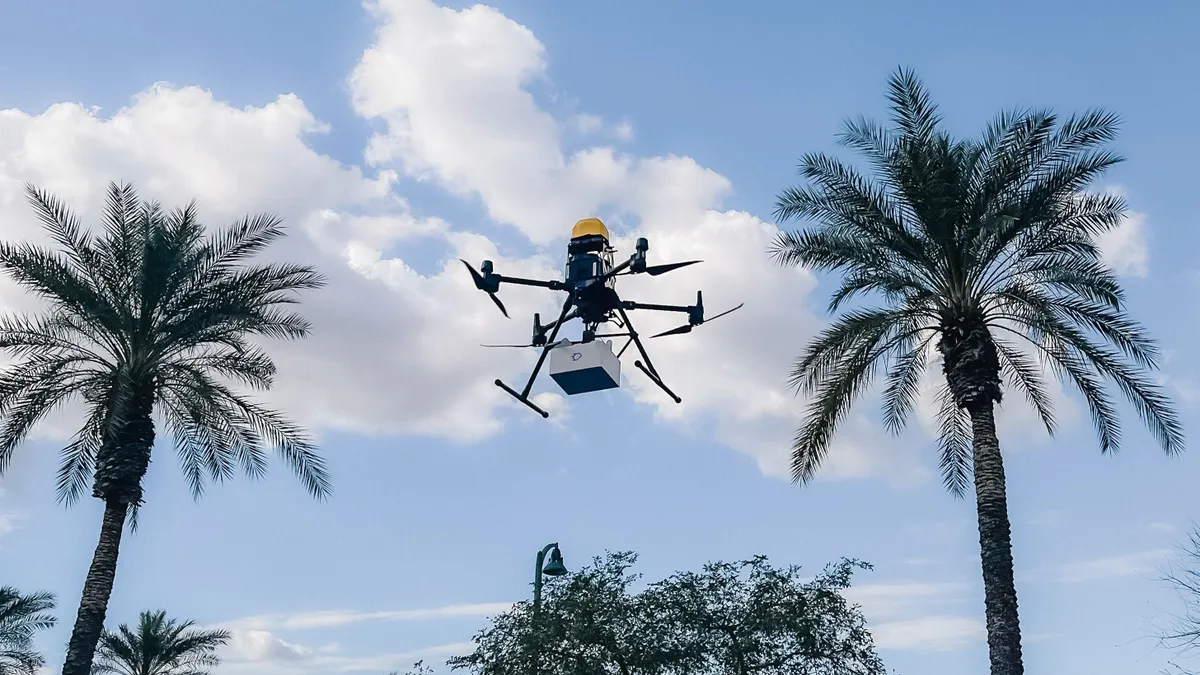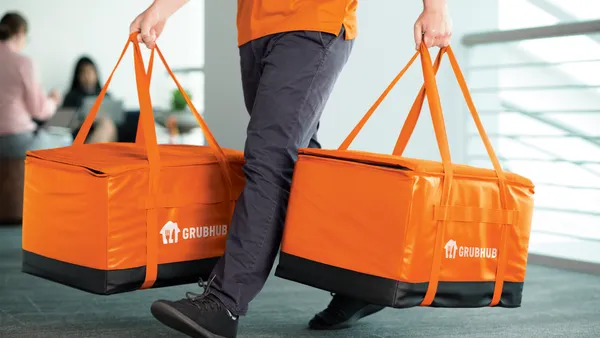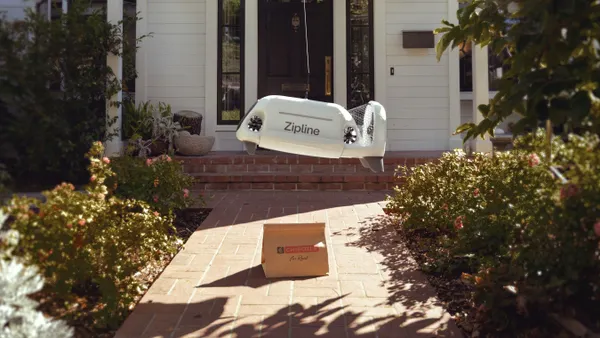Dive Brief:
- Flyby Robotics, a drone delivery startup, announced on Wednesday a $4 million funding round led by MaC Venture Capital, along with a series of partnerships with foodservice brands.
- Flyby will deliver goods from Nekter Juice Bar, Mad Greens and Tokyo Joe’s as part of a pilot beginning Wednesday. According to CEO Jason Lu, that pilot will last for several weeks and involve a single drone making deliveries from three stores in the Mesa/Gilbert, Arizona area.
- Drone delivery is still in its early stages, but restaurant brands are participating in trial programs and expansions. Last month, Sweetgreen announced a partnership with Zipline to eventually offer autonomous delivery.
Dive Insight:
Flyby says the funding round will enable its drones to reach a level of development at which they are capable of flying through a whole delivery cycle without human intervention, except in cases of emergency. The company’s drones currently fly under FAA Part 107, a regulation that allows commercial operators to employ small drones within strict limits. Flyby says it is able to provide delivery within the test radius, about a mile, within about 4 minutes for a $3 fee. According to the press release, Flyby will eventually launch drone delivery in Las Vegas.
Competitors of Flyby, like Zipline and Flyrex, have been building out delivery partnerships with chains and pursuing regulatory permission for wider delivery boundaries. In January, the Federal Aviation Administration granted Flytrex Part 135 Air Carrier certification, opening a path to widespread delivery. Brands like Charleys Philly Cheese Steak and Brinker International have worked with Flytrex to offer drone delivery in very limited geographies.
Land-based robot delivery seems to be a few years ahead of airborne delivery, with partnerships between delivery companies and robotics firms encompassing thousands of robots. Still, the overall adoption of autonomous delivery remains relatively low.
Drone companies claim their mode of delivery is more sustainable than car or bike services, though much of the U.S. grid relies on fossil fuels for electricity generation, meaning battery powered drones face the same sort of long tail-pipe sustainability issue as electric cars.














